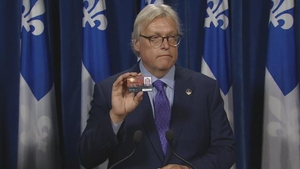Hospital care is fully portable across Canada, but unlike all other provinces and territories, Quebec has refused to sign a reciprocal agreement for physician services. Quebecers seeking medical treatment in another province usually find that the MD refuses to accept their provincial health card. Instead they must pay upfront and wait for partial reimbursement (often only half of the amount paid) from the Quebec government. This affects three major groups of persons.
Quebecers may wish to visit friends and relatives in other provinces. Those with pre-existing conditions should not be deterred from travel for fear that they may develop an unexpected illness and face unaffordable up-front medical charges in another province. Travel insurance is often unavailable for services supposedly covered by provincial health insurance. Moreover, policies often exclude complications of a pre-existing condition, and do not cover a person who has changed even the dose of a medication within 3-6 months of traveling.
Quebecers who move permanently to another province are “covered” for the first three months by Quebec insurance –yet very few MDs will accept their medicare card. This is particularly relevant for thousands of recent migrants to Quebec from the United States who have obtained a work permit and wish to seek employment in another province or territory.
There is a major shortage of family physicians and specialists in West Quebec. Therefore, residents of this region often electively seek care from MDs in Ottawa, Pembroke, Hawkesbury, and other border cities. Lack of fully portable medical benefits is not merely an issue of financial inconvenience; it may cause serious hardship and adversely affect outcomes. An article by Caroline Alphonso in the Globe and Mail in November 2010 described a man across the river from Ottawa with colon carcinoma. The Ottawa Hospital anesthetist refused to accept his Quebec insurance. He therefore meekly waited several months until he could have the surgery done in Montreal. Perhaps in part as a result, by then he had extensive lymph node metastases. He required high-dose treatment, developed bowel obstruction and other complications, was never able to eat solid food again and died a couple of years later. This case is likely not isolated.
Meanwhile, federal and Quebec politicians continue to ignore the problem, while Ottawa is enforcing only part of the Canada Health Act. This was underscored in Prime Minister Trudeau’s mandate letter to new Federal Health Minister Ginette Petitpas Taylor, which required her to “make it absolutely clear that extra-billing and user fees are illegal under Canada’s public medicare system.”
Quebec fears that its own physicians may demand fee parity if it pays Ontario and other out-of-province physicians at a greater rate than that in Quebec. According to the Canadian Institute for Health Information, for 2014-15, average gross clinical payments per physician were – for Quebec MDs, 92% that of the Canadian average, and about 85% that of MDs in Ontario, Alberta, and Saskatchewan.
Also, Quebec has always maintained that healthcare delivery is a strictly provincial matter. I largely agree. However, for patients treated in another province, is the relevant province that of the patient or of the treating physician? This does require federal oversight and intervention; Ottawa has a duty to ensure that Quebec patients are fully covered throughout Canada.
 If it cannot or will not force Quebec to comply with Section 11 of the Canada Health Act, a good solution would be for the federal government to pay physicians directly for out-of-province patients. It does so for federal prisoners, for refugees (through the Interim Federal Health Program) and did so until recently for members of the RCMP. I estimate that this would cost about $175 million or 0.7% of the total amount paid for physician services across Canada – an affordable sum.
If it cannot or will not force Quebec to comply with Section 11 of the Canada Health Act, a good solution would be for the federal government to pay physicians directly for out-of-province patients. It does so for federal prisoners, for refugees (through the Interim Federal Health Program) and did so until recently for members of the RCMP. I estimate that this would cost about $175 million or 0.7% of the total amount paid for physician services across Canada – an affordable sum.
If Quebecers consider this an issue that after 30 years finally demands resolution, they must intensively lobby their federal politicians.
These attempts are sometimes successful. Note that very recently - thanks to pressure from advocacy groups -Kanal Khera, parliamentary secretary to the minister of national revenue, apologized and agreed that the Canada Revenue Agency would revert to its previous interpretation of criteria for receiving disability tax credits for patients with Type 1 diabetes mellitus.
Hopefully Trudeau and Petitpas Taylor will finally give Quebecers the portable benefits and full access to medical care enjoyed by their fellow Canadians.
